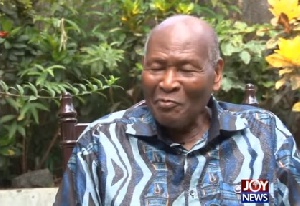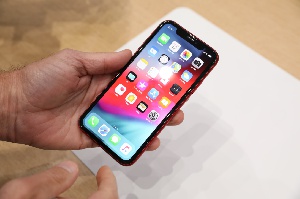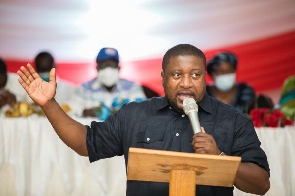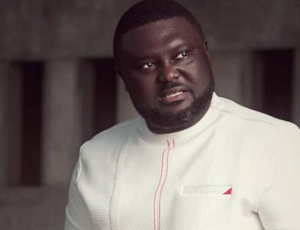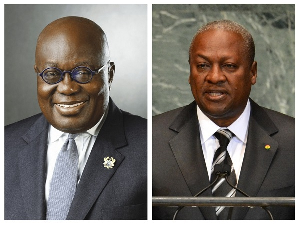On Wednesday, January 8th, 2020, Sam Okudzeto, a Member of the Council of State urged our president Nana Akufo-Addo to revisit the recommendation made by the Constitutional Review Commission.
Sam Okudzeto was concerned about the amount of power vested in the President. He believed that some of the load should be taken away. I definitely agree with him and here are my thoughts on what needs to be change in our constitution.
Before I start I would like to state that our current political system is characterized by neo-colonialist views, ideas and principles.
As a Pan-Africanist and one that is interested in studying Indigenous governing practices before colonization, the views expressed here are in direct opposition to how our current political system operates. My thoughts are meant to move us from a neo-colonial mind frame into an Afrocentric mind frame that works for all Ghanaians and not a few.
As stated earlier Mr. Sam Okudzeto is concerned about the powers of the President. I concur. I will also add that our whole system is centralized around the winning political party.
In Ghana the decentralization project has been limited to the district assembles as per article 240 in the constitution. The idea of decentralization should be applied to the legislature as well.
Based on the lack of representation and engagement between Members of Parliament and citizens, I propose that in addition to parliamentary sessions in Accra, there should be regional parliamentary sessions that are presided over by local chiefs.
Chiefs should be given the freedom to solicit individuals, civil society groups, unions, and other political groups for agenda items, participation, and recruitment. This would be a space to discuss impending laws, bills and regional project developments; citizens can have input on what should be done in their respective regions. This would energize the relations between chiefs, MPs, and citizens.
As a matter of fact, Kwamena Ahwoi in his book Local Government and Decentralization, called for chiefs to take part in the political process. And in the constitutional review that used a participatory qualitative inquiry method that received 83,161 submissions, they found out that there was a zeal to include more of our traditional governing system into our current political system.
The idea of creating regional parliamentary sessions is equivalent to the village palaver where citizens have access to a communal space for dialogue and deliberation. It is in these spaces that citizens, chiefs and Members of Parliament will be able to work on cooperation, have access to information, talk though the pros and cons of development goal, build trust and work on their civic attitudes. More over our political systems should be deliberate in encouraging people residing in rural areas. And chiefs have the ears of many rural citizens.
The other point is one that everyone knows is a glaring problem, it is the fact that our President whoever wields enormous amount of power as evidence by articles 70, 74, 86, 183, 185, 189, 202, 207, 212, 232, and 243. The above-mentioned articles give the President the powers to appoint individuals to fill public positions (such as Ministers of State, Deputy Ministers of State, Commissioner for Human Rights and Administrative Justice, Chairpersons and other members of the Public Services Commission, Lands Commission, and others) in consultations with the Council of State or with the approval of parliament.
Why should a President have to make over 200 political appointments? This type governance resembles that of indirect rule that established colonization in Ghana by colonial powers. It is this mode of governance that led to patrimonialism. This mode of governance is contrary to Indigenous governing practices that provide ideas of inclusion.
The Constitutional Review Commission report looked at this issue and recommended that the President’s general power of appointment be maintained. This recommendation does not address the fact under these provisions the patronage system is still being promoted.
When Ministers of State, Deputy Ministers and other are appointed by the President they technically owe allegiance to the President. This is why the current political system is insulated from the needs of citizens in the country.
To address this dysfunctional attribute in the constitution I recommend the creation of a Human Resource Committee made up of appropriate representatives from the Public Service Commission, unions in the specific government agency, head of Civil Service and State Enterprise Commission hire Ministers of State, Deputy Minister, Commissioners of government agencies, Auditor General, Chairperson and members of National Commission for Civic Education, National Development Planning Commission and other Government related agencies.
The rationale for implementing a Human Resource Committee is to adopt administrative decentralization or deconcentration. This id the re-location of branches of the central states to local areas (government agencies) entailing a transfer of powers to locally-based officials who remain part of, and upwardly accountable to, central government ministries and agencies. The Head of Public Service Commission should be responsible for appointing a representative to sit on the Human Resource Committee. The president or executive members of the union would represent the union on the committee. So for example, public servants within a ministry and other citizens could apply to be a Minister, Deputy Minister, etc. The criteria for applying for the positions would be: individuals should be qualified to be elected as a member of parliament, individual should at least have a Master’s degree and 5 or more years of private/public expertise in the field they are applying for. The purpose here is to void the governing system of neo-patrimonal, clientilist and predatory politics, where individuals who are appointed to these position belong to the majority ruling party.
It has become more evident than ever that our constitution needs reform. If we are going to make changes, we should employ changes that really tackle the neo-colonial tendencies and practices. I offer these thoughts as realistic and innovative ways of incorporating our Indigenous ways of governance into a Constitution that should be Ghanaian and not a copycat of our colonizers.
Written by
Kojo Damptey, BEng, MA.

